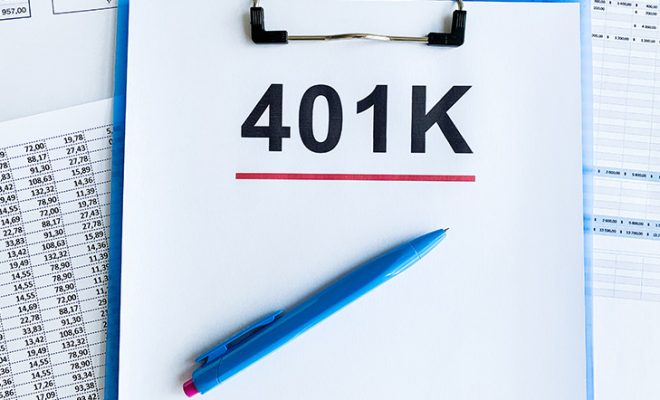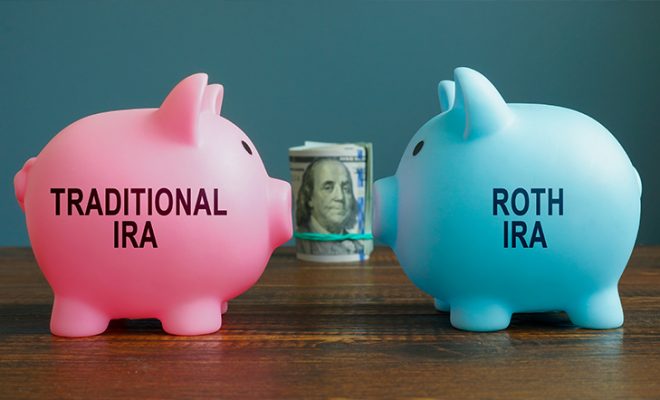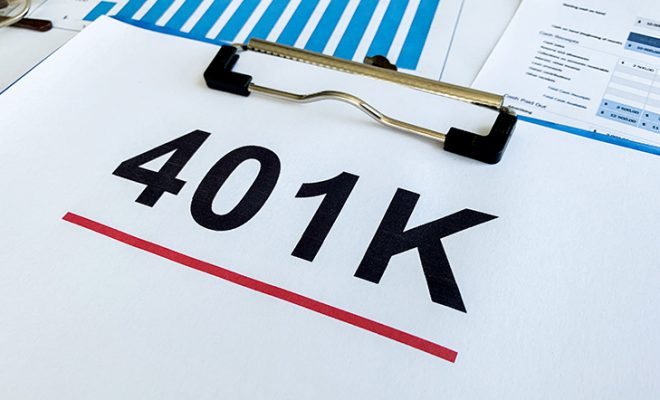How is Your 401(k) Taxed When You Retire?

401(k) accounts are one of the most widely used and popular retirement savings plans in America. As per the latest report by the American Benefits Council, more than 80 million people actively participate in a 401(k) plan, and over $5.7 trillion worth of assets are held in this retirement savings account. This employer-sponsored retirement savings tool allows employees to make automatic/ defined-contributions from their payroll, while simultaneously the employer may also match the same or a percentage of the contribution. The 401(k) account owes its popularity to the upfront tax-advantages it offers. Annual contributions reduce the income tax for the specific year. Moreover, the earnings on 401(k) investments are tax-free until the money is withdrawn. However, these accounts do attract taxes upon withdrawal and during retirement.
What taxes are to be paid for 401(k) account withdrawals?
Contributions made to 401(k) accounts are tax-free until withdrawn after retirement. However, when you begin to take distributions from the account, the IRS (Internal Revenue Services) levies taxes. Generally, the withdrawals are taxed as per the ordinary income tax provisions, however, the actual income tax rate can vary depending on the type of 401(k) account – traditional or Roth 401(k). Moreover, the time and purpose of withdrawal also influence the tax penalties.
Taxes on traditional 401(k) accounts
For 2020 and 2021, the maximum contribution limit for a 401(k) account is $19,500. However, if you are older than 50 you can invest upto $26,000 per year. Contributions made to your traditional 401(k) account are deducted before the IRS levies any tax charges. These pre-tax dollars reduce your taxable income for the year, and consequently, the income tax paid. For example, if you earn $2,000 before taxes and contribute $400 to your 401(k) account, your overall taxable income reduces by $400. So, when you file your annual tax return, you report $1,600 instead of $2,000.
However, this deferred tax is due when you begin to take withdrawals from your traditional 401(k) savings account. Generally, these accounts are taxed at your income tax rate of the year in which you take the distribution. But you might get a special tax treatment if you were born before 1936 or if you take a lump-sum drawing from your account.
Taxes on a Roth 401(k)
A Roth 401(k) is a better tax-advantaged account as compared to a traditional 401(k). In the former, the contributions you make are your after-tax dollars. Hence, because you have paid taxes in the present, you may be eligible for tax-free withdrawals, provided you make qualified drawings. To make your distributions qualified, you must:
- Take out the money on or after you turn 59.5
- Make consistent contributions and hold the Roth 401(k) for at least five years from the date of commencement
That said, these tax rules apply only to the amount earned on your deposits. Unlike a traditional 401(k), a Roth 401(k) allows you to take tax-free distributions of your actual contributions at any time. However, if your employer matches your contributions in a Roth 401(k) account, those will be considered as pre-tax dollars and will attract a penalty on withdrawal, as per ordinary income tax charges.
Summary of taxes on a traditional and Roth 401(k)
| Parameter | Traditional 401(k) | Roth 401(k) |
| Contributions | Includes pre-tax contributions, which reduce the overall taxable income of a year. | Includes after-tax contributions from the employees, but pre-tax contributions from employers. No effect on the taxable income of a year. |
| Withdrawals | All withdrawals in retirement are taxed as ordinary income. | No taxes apply on qualified distributions. |
| Withdrawal rules | Earnings and contributions are both taxed.
Penalty on distributions taken before 59.5 years, unless eligible for IRS special exceptions. |
Withdrawals on earnings and contributions are not taxed if made for a qualified purpose or as per IRS criteria:
|
Till when can you evade taxes on 401(k) withdrawals?
In both the traditional 401(k) and a Roth 401(k), the IRS mandates you to take required minimum distributions (RMDs) from the age of 72. Hence, you can evade taxes on withdrawals for these accounts till you reach 72 years. If you fail to take the RMDs at the stipulated time, the IRS can levy a penalty of 50% on the funds not distributed. Alternatively, there is no charge for drawing more than your RMD figure.
However, this provision has been waived under the CARES Act 2020 to provide monetary assistance during the COVID-19 pandemic. This waiver aims to give more time to these accounts to recover from the recent stock market slumps. Moreover, retirees benefit from the tax-break on mandatory withdrawals.
What happens in case of early withdrawals?
Any withdrawals made from a 401(k) account before you turn 59.5 years are considered an early withdrawal. As of 2019, all early withdrawals were charged a 10% penalty. However, the CARES Act 2020 allows people facing hardships due to the COVID-19 pandemic to withdraw up to $100,000 from a 401(k) account. The taxes and income can be spread across three years. Further, the act also waives the 10% penalty on early withdrawals before the age of 59.5 years.
However, in ordinary circumstances, you can evade the 10% penalty on early withdrawals from a traditional 401(k), if you:
- Are having a divorce
- Are or have become incapacitated or disabled
- Use the funds to pay for an IRS charge
- Are a victim of a disaster
- Have overcontributions in your account
- Served in the military
- Give birth or adopt a child
- Quit your job
- Qualify for a suitable hardship distribution
- Take the pay-out over time
- Direct the money into another retirement account
- Utilize the funds to cater to specific medical costs
- Upon death
For a Roth 401(k) account, you can take distributions early if you have held the account for over five years or if you need the money because of a disability or death.
How can you reduce your 401(k) taxes when you retire?
Here are some easy tricks that can help you save some 401(k) dollars from taxation:
- Since withdrawals trigger taxes in a 401(k) account, it is advisable to keep your money in these accounts for as long as possible. However, be mindful of your RMDs.
- In case of early withdrawal, see if you qualify for one of the tax-free exceptions listed above.
- Check if you are eligible for Saver’s Credit on your 401(k) contributions.
- You can rollover your existing 401(k) savings account into an IRA (Individual Retirement Account) or another 401(k) account to avoid taxes. Remember, the conversion must take place within 60 days, or the IRS might charge taxes and also a penalty.
- Consider borrowing from your 401(k) account instead of taking an early distribution. You must check if your 401(k) account offers loans.
- Check with your financial advisor to use tax-loss harvesting methods to reduce your tax duty. You may decide to sell securities at a loss that are not performing well in another investment account to reduce the cumulative tax liability.
To sum it up
Even though 401(k) accounts are not the ideal tax-advantaged accounts, especially in comparison to Roth IRAs, it is still advisable to make the maximum contributions to these accounts for a secure retirement. Further, with the help of a professional financial advisor, you can use some of the tax-saving strategies to maximize your tax benefits.









